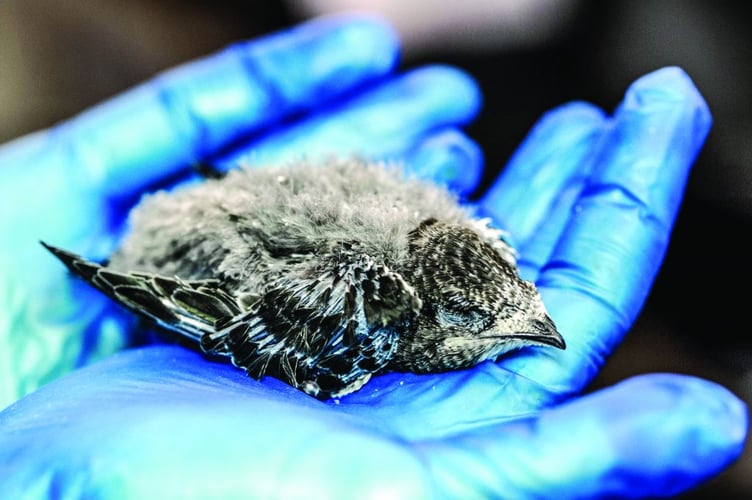A SEND woman has been working tirelessly to return injured and abandoned baby birds to the skies.
Helena Finden-Browne is a volunteer for the Leatherhead-based charity Wildlife Aid Foundation, which accepts grounded or injured swifts and hirundines – notably swallows, sand and house martins – for treatment.
These birds are difficult to feed in captivity, so they are sent to specialist carers for attention and hand-feeding until they are able to fly and catch their own food.
From early June, injured or young hatchlings start to arrive and are welcomed to Helena’s home-based soft-meshed aviary, where they are fed every two-and-a-half hours during daylight hours.
Bad weather can have a severe impact on breeding swifts. One of three swift nestlings hatched a few days later than its siblings, but a period of torrential rain and wind had stopped the parents hunting.
While swifts can go into a state of torpor and stop developing during lean periods, the hatchling was too small to maintain his body temperature and was rescued and delivered to Helena.

She said: “He was much smaller than my little finger, completely bald, eyes tight shut and very cold. I put him in a tiny nest with another juvenile swift already in my care to warm him up, and crossed my fingers.
“At dawn the next day he was still alive and eagerly took the food and electrolyte drinks that helped start him on the road to recovery.”
Nicknamed Plucky, he’s now fully grown and developed into a strong bird. Swifts normally fledge at 42 days, but he needed a little longer to catch up with his siblings before he went on his way to Africa.
This is her second year as a specialist avian carer, and she has released 60 birds back into the wild.
Helena said: “This work gives me get immense satisfaction. Swifts are my favourites; they are so different and far more dramatic than other birds.
“They are the true harbingers of summer, and sadly their numbers are declining. If I save one in a whole season then it’s been worth all the work.”
For more information on the Wildlife Aid Foundation or to donate, visit www.wildlifeaid.org.uk.




